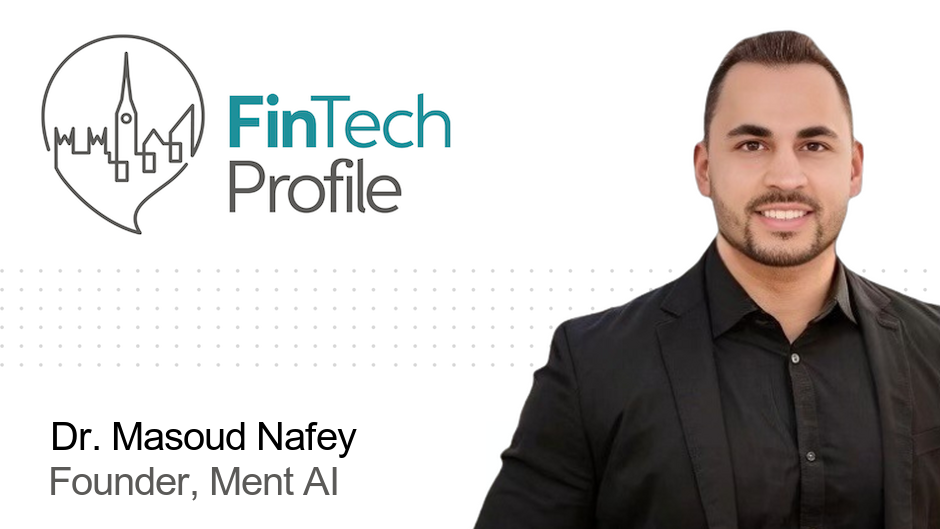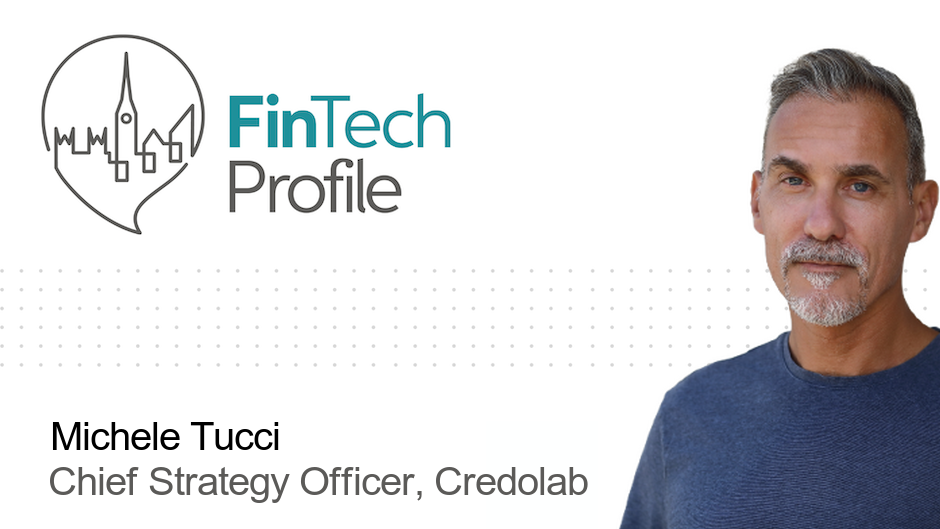Lisa Miles-Heal, CEO, Silverfin

Today we're meeting Lisa Miles-Heal, CEO at Silverfin. The company provides an innovative, AI-enabled SaaS platform for accountants that significantly enhances their compliance and advisory Client Accounting services.
Over to you Lisa - my questions are in bold:
Who are you and what's your background?
My name is Lisa (people call me LMH) and at my core I'm a change agent, strategist, and storyteller. I've spent over 20 years in tech, primarily in SaaS, but my career didn't start in the typical way. I was the first in my family to go to university, and I learned early on that anything can be possible but if you want something, you've got to be resourceful.
I started my career in marketing, people, and customer operations before transitioning into technology in my mid-twenties. My curiosity for understanding the 'why' of things led to my first real tech role as a Business Analyst. That curiosity led me through roles in project management, change management, consulting, and eventually into leadership. I've been on both the client and vendor sides, worked in deeply technical environments despite never writing a line of code myself, and led businesses from IT Director to COO to CEO.
I consider myself a 'specialist generalist' - I've run every function in a software business at some stage, and that broad experience helps me lead with empathy and pragmatism. As a proud Kiwi, I've always had a global mindset. Being from a small, distant country forces you to think big. That approach has shaped the way I tackle challenges, whether it's scaling teams, refining a GTM strategy, or leading digital transformation.
Outside of work, I'm a mentor, investor, and advisor. And in case you're wondering what's atypical about me - I don't have an MBA, I'm usually in sneakers at work, and I consider myself sophisticated in a non-traditional sense. But I've built my career by being transparent, analytical, and just a little bit bossy.
What is your job title and what are your general responsibilities?
I'm the CEO of Silverfin, a global fintech platform that's transforming the way accountants work. I set the strategic direction, creating clarity, and ensuring we have the right focus and people in place to execute our strategy.
A big part of my job is change leadership - helping the business evolve without creating chaos. I spend a lot of time working with our leadership team to refine our GTM approach, ensuring our product strategy aligns with customer needs, and keeping our people engaged in our mission. I also spend a lot of time with customers, which I love. The best leaders stay connected to the people who use their products, and those conversations often shape how we think about innovation at Silverfin.
Can you give us an overview of your business?
We are transforming the future of accountancy. The industry has long been burdened by disconnected data, manual compliance processes, and outdated reporting methods. Silverfin was built to change that.
At the heart of what we do, Silverfin is a cloud-first platform designed by accountants, for accountants. We connect financial data from multiple sources, automate compliance workflows, and standardise reporting - making accountants' lives easier and their work more impactful. One of our biggest innovations is Silverfin Assistant, an AI-powered feature that performs hundreds of automated checks on client data. It flags errors, detects anomalies, and even provides recommendations - cutting down compliance and year-end review time by up to 50%.
So, what makes us different? First, we integrate with any accounting software, so firms don't need to overhaul their systems. Second, we're AI-driven, meaning we don't just automate processes - we enhance them with real-time insights. And finally, we can scale with firms of all sizes, helping them reduce risks and filing effort while uncovering advisory opportunities and training junior staff.
Tell us how you are funded?
Silverfin has had an exciting journey when it comes to funding. In the early days, Silverfin raised investment to scale - securing $34.5M over two rounds. But the real milestone came in 2023 when we were acquired by Visma, a leading provider of mission-critical cloud software, in a €300 million deal.
This acquisition was a game-changer for us. It wasn't just about funding - it was about finding the right strategic partner to support our next phase of growth. Visma understands our vision, and being part of its ecosystem allows us to accelerate innovation while maintaining the agility that's been key to our success.
In the lead up to the acquisition, the team and I were focused on balancing growth with sustainability - what's often called the Rule of 40. This rule was top of mind for us during the acquisition process. It's a simple but powerful metric that ensures companies grow at a strong rate while also maintaining profitability. For Silverfin, that meant making sure we weren't just scaling for the sake of it, but building a business with real, lasting impact.
One of the biggest lessons I took from our funding journey was that investors aren't just looking for fast growth; they want to see a business that's sustainable, with a strong team and a clear vision. That's exactly what we've built - and now, with Visma behind us, we're in an even stronger position to keep driving digital transformation.
What's the origin story? Why did you start the company? To solve what problems?
Silverfin was created to solve a very real problem: accountants were spending far too much time on manual, repetitive tasks instead of focusing on the high-value advisory and strategy work their clients actually needed. The industry was (and in many ways still is) heavily reliant on disconnected and inefficient data management.
The vision was clear: what if accountants had one centralised platform that automated compliance, integrated seamlessly with existing software, and provided real-time insights?
That's how Silverfin was born. From the start, the focus was on building a cloud-first, AI-powered solution that could connect siloed data, reduce compliance headaches, and free up accountants to focus on strategy, not just spreadsheets.
Who are your target customers? What's your revenue model?
We're already trusted by nearly 1,000 accountancy firms, including the Big 4 and 30 of the UK's top 100 firms, and we process over 400,000 client files every year. Since our acquisition by Visma Group in 2023, we've continued to grow, expanding into new markets across 16 countries. I would say we've well balanced localisation efforts with more global partnerships like the one with MYOB in ANZ, so being agile has been important for us.
Our agility is also matched in scalability. We can seamlessly integrate with any accounting software through our open API, positioning Silverfin as a useful tool for firms of all sizes. Eliminating the need for disparate tools has ensured our target client base is far reaching. We are super proud of our exceptional customer retention rate (124% NRR), which is driving organic growth through referrals and reputation.
If you had a magic wand, what one thing would you change in the banking and/or FinTech sector?
I'd fast-track the cultural shift around AI's adoption in accountancy. The technology is there, the benefits are clear - but too many firms are still hesitant to fully embrace it.
Right now, there's a gap between what AI can do and how comfortable people feel using it. Some worry it's going to replace jobs; others don't trust it to make decisions, and many simply don't know where to start. But the reality is, AI isn't here to take over - it's here to take away the manual, repetitive work that slows accountancy teams down. The sooner we move past the fear and focus on the opportunity, the better.
I have this saying that all of us build what we can sell and sell what we can build. We can only build and innovate as much as people can see the value in it. I'd love to see a mindset shift where AI is viewed as a copilot, not a threat - something that empowers accounting professionals rather than replacing them.
Imagine a world where accountants spend less time chasing errors and more time driving real strategic business value. The technology already exists to make that happen - we just need the industry to catch up. Imagine how much better a world we could all live in if amazing entrepreneurs, business owners and leaders all received impactful advice from their accountants that made them do better businesses.
Finally, let's talk predictions. What trends do you think are going to define the next few years in the FinTech sector?
With economic and political uncertainty, a talent shortage in the accounting industry, and rapid advancements in AI, we're seeing a fundamental shift in how accounting firms operate. Over the next few years, I expect 3 key trends to shape accountancy: AI-powered transformation, increasing M&A activity between firms, and the growing strategic role of the accountant.
AI and automation will take centre stage. The technology is already proving its value, but we're only scratching the surface. We'll see wider adoption of AI-driven insights, helping firms move from being reactive to predictive. The ability to identify risks, spot inefficiencies, and enhance compliance in real time is a game-changer. But the real shift will be cultural - firms will need to move beyond seeing AI as a 'nice-to-have' and start embedding it into their everyday workflows.
Mergers & acquisitions in the accountancy sector will continue to accelerate. Larger firms are using their scale to dominate, while smaller firms differentiate through highly personalised services. Mid-sized firms that don't adapt risk being absorbed or losing talent to more specialised competitors. Private equity is also fuelling this shift, recognising the value in modernising firms with technology, to drive efficiency and long-term returns.
Finally, accountants will redefine their role. The perception of accountancy as solely focused on compliance and reporting is becoming outdated. Instead, digital transformation - the deployment of advanced accountancy and compliance software - provides an opportunity for teams to become key strategic advisors on top of the compliance boxes all being ticked. The change will put firms in a stronger position to respond to new complexities and challenges that will inevitably emerge in the future. This shift will also help address the ongoing talent crisis in accountancy. With fewer accountants entering the profession due to concerns over work-life balance, businesses need to be proactive - leveraging automation to reduce burnout and upskilling their teams to focus on high-value work.
The winners over the next few years will be those who embrace AI, adapt to market consolidation, and empower finance professionals to take on a more strategic role. It's not just about keeping up with change - it's about leading it.
Thank you very much, Lisa!
Read more about Lisa on LinkedIn and find out more about Silverfin at www.silverfin.com.




